Philippe Currat: Putting Putin on trial is ‘bit of a fantasy’
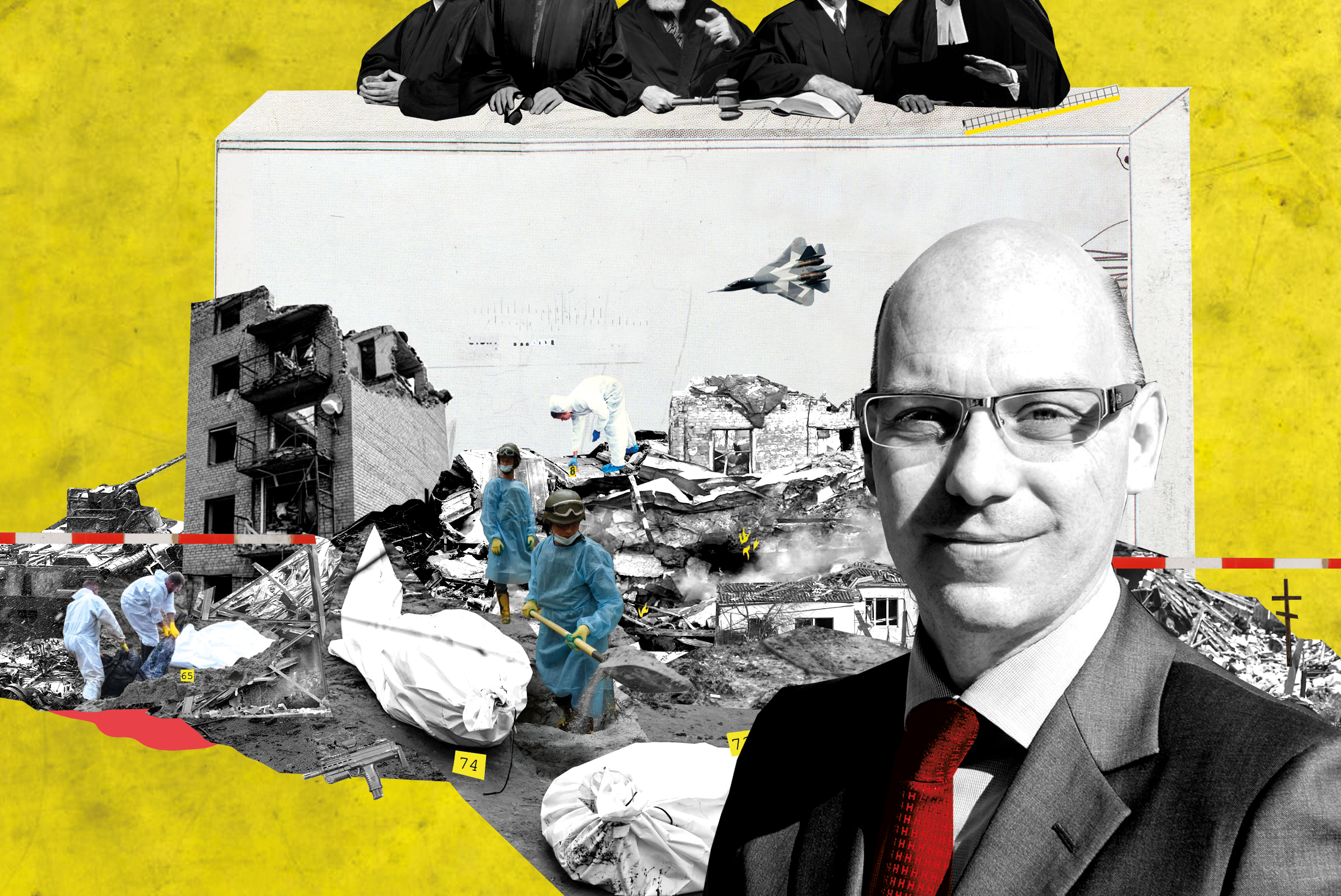
Can Russian President Vladimir Putin be brought to justice for war crimes committed by Russian soldiers in Ukraine? Geneva lawyer Philippe Currat has his doubts.
Currat wrote his thesis on crimes against humanity in the statutes of the International Criminal CourtExternal link (ICC). In 2005 he was seconded by the Swiss foreign ministry as senior legal adviser to the Prosecutor of the Special Court for Sierra Leone. He represented the International Criminal Bar (ICB) at the assemblies of the States Parties to the ICC, in particular at the 2010 Review Conference of the Rome Statute, and was the ICB’s Secretary General from 2012 to 2017. He is on the list of counsel admitted to appear before the ICC.
SWI swissinfo.ch: Do heads of state really have immunity before the law?
Philippe Currat: In the current context there’s talk of bringing Vladimir Putin to justice. Since he’s the head of state, I understand that he should be the target of any proceedings. He has decision-making power, so he’s seen as having overall responsibility for what’s happening. However, it’s a bit of a fantasy. There are other echelons that could be reached more effectively. But let’s take a look at this idea anyway.
The ICC statute lays down that there is no immunity for genocide, crimes against humanity and war crimes. The states that have ratified the Rome Statute have thus agreed to waive this customary-law immunity for their highest authorities. Since this is an exception, it applies in a restrictive manner only to those states that have agreed to waive it, and a state can only agree to do so for its own authorities.
The ICC can only prosecute the heads of state or government or the foreign ministers of countries that are party to the Rome Statute. The question of whether immunities also apply to the heads of non-party states when the UN Security Council refers a situation to the ICC remains controversial. The only case that has occurred so far is that of Sudan, with the indictment against the then-president Omar al-Bashir.
SWI: Was this because the Security Council pinpointed the situation in Sudan, without mentioning individuals who should be brought to justice?
P.C.: Indeed, the Security Council resolution didn’t target an individual person but all the acts committed in Darfur. The Security Council didn’t mention specific people and said nothing about immunities. So can immunities be considered to apply or not? The question will always remain open with regard to Darfur, as al-Bashir lost power before being tried.
As soon as someone is no longer head of state, head of government or foreign minister, they can be brought to trial, including for acts committed while in office. So the only way of prosecuting Putin today, or for example [Russian Foreign Minister] Sergei Lavrov, would be if they ceased to hold office.
SWI: So there’s little chance that Putin will be brought to justice in the near future?
P.C.: For years people said about [former Serbian and Yugoslav president] Slobodan Milosevic: “It’s impossible, you’ll never get him.” But one day he lost power, he was arrested, he was transferred to the International Criminal Tribunal for the former Yugoslavia and he was tried. So it’s possible.
It’s important here to adopt the point of view of a criminal lawyer and investigator, and not a political “I want to try Putin” approach. Because if we focus on Putin, what do we do next? What are we accusing him of, in terms of his criminal responsibility, rather than his political or moral responsibility? He has never been on the battlefield himself, shooting civilians, raping and looting or who knows what else.
SWI: Hitler never operated a gas chamber himself. Yet there’s no doubt that he was the key figure in the Holocaust. Can the top leaders really get off scot-free?
P.C.: Hitler committed suicide and so escaped any proceedings. This raises the whole question about leaders, who bear different kinds of criminal responsibility than the direct perpetrators. A certain number of elements have to be proven before leaders can be incriminated and, if applicable, convicted.
But just as it’s questionable to try only the perpetrators while letting the leaders off the hook, prosecuting only the leaders without dealing with the perpetrators is also problematic. Determining the actual facts on the ground will be crucial. The missile that fell on a school, a maternity ward, a hospital, that killed civilians and caused documentable damage – you have to determine where it came from. You can then establish who launched it and, once you’ve identified the unit responsible, you’ll be able to identify the chain of command above it and see how far back you can go to engage the possible criminal responsibility of the superior.
It will also depend on the level of evidence that can be collected. Crimes against humanity, war crimes and genocide are extremely complex offences. Clearly they cause a large number of victims, but it’s easy to forget that they are the result of a large number of acts committed by a large number of people, hence the difficulty of establishing the individual criminal responsibility of each potential perpetrator, in connection with each act and victim.
SWI: Indeed, so what about genocide?
P.C.: For it to be a genocide, there must be proof of intent to destroy all or part of a national, ethnic, racial or religious group as such. If this is not the case, there is no genocide, no matter how many people die.
SWI: Since the start of the invasion, Ukraine has been calling for the creation of a special court to try Russian crimes and the people responsible for the war. Is this possible?
P.C.: Ukraine referred the case to the ICC already back in 2014, recognising its jurisdiction, and it was only much more recently that it called for a new body to be created. Personally, I’m not in favour of this. When the ICC was established, the goal was to change tack and avoid setting up ad hoc courts for a particular conflict after the event, as this would undermine the legitimacy of the ICC. Establishing a new tribunal is not only a political issue but also a financial one, because each time a specific body comes into being it needs to have buildings, staff, budgets and the means to conduct its investigations and trials, and all this is extremely expensive. Beyond the announcement effect, I’m not sure that states are ready to finance such an institution, when one already exists: the ICC, which is permanent and universal and has already begun its investigationsExternal link.
What’s more, I don’t see how, legally speaking, we could create a new body to judge acts committed in Ukraine by Russian soldiers or agents without Russia’s consent. It is a question of sovereignty.
This seems to me to be a wrong good idea that will complicate matters further, because we already have the primary jurisdiction of the – very active – Ukrainian national courts, the universal jurisdiction of any other country, the international jurisdiction of the ICC, a number of other investigative bodies set up by third states in cooperation with the Ukrainian authorities, and European bodies such as Eurojust, which are also taking action. Adding yet another player could lead to total confusion.
SWI: Moscow says Switzerland is not living up to its neutrality by enforcing the sanctions against Russia. What is your view?
P.C.: Swiss neutrality endures today. It has a humanitarian and peaceful orientation and serves peacekeeping efforts. Neutrality cannot be understood as renouncing the enforcement of international law and the restoration of peace and security in a clear case of aggression such as this. Not taking sides between the aggressor and the victim is to favour the aggressor. A country that aligns itself with the sanctions taken against Russia by European bodies and at the global level by the United Nations is not surrendering its neutrality, but expressing it in support of peace and the law. To say that Switzerland is no longer a neutral and impartial partner as a result is political positioning and posturing, but it’s not reality.
Edited by Balz Rigendinger. Translated from French by Julia Bassam/ts

In compliance with the JTI standards
More: SWI swissinfo.ch certified by the Journalism Trust Initiative
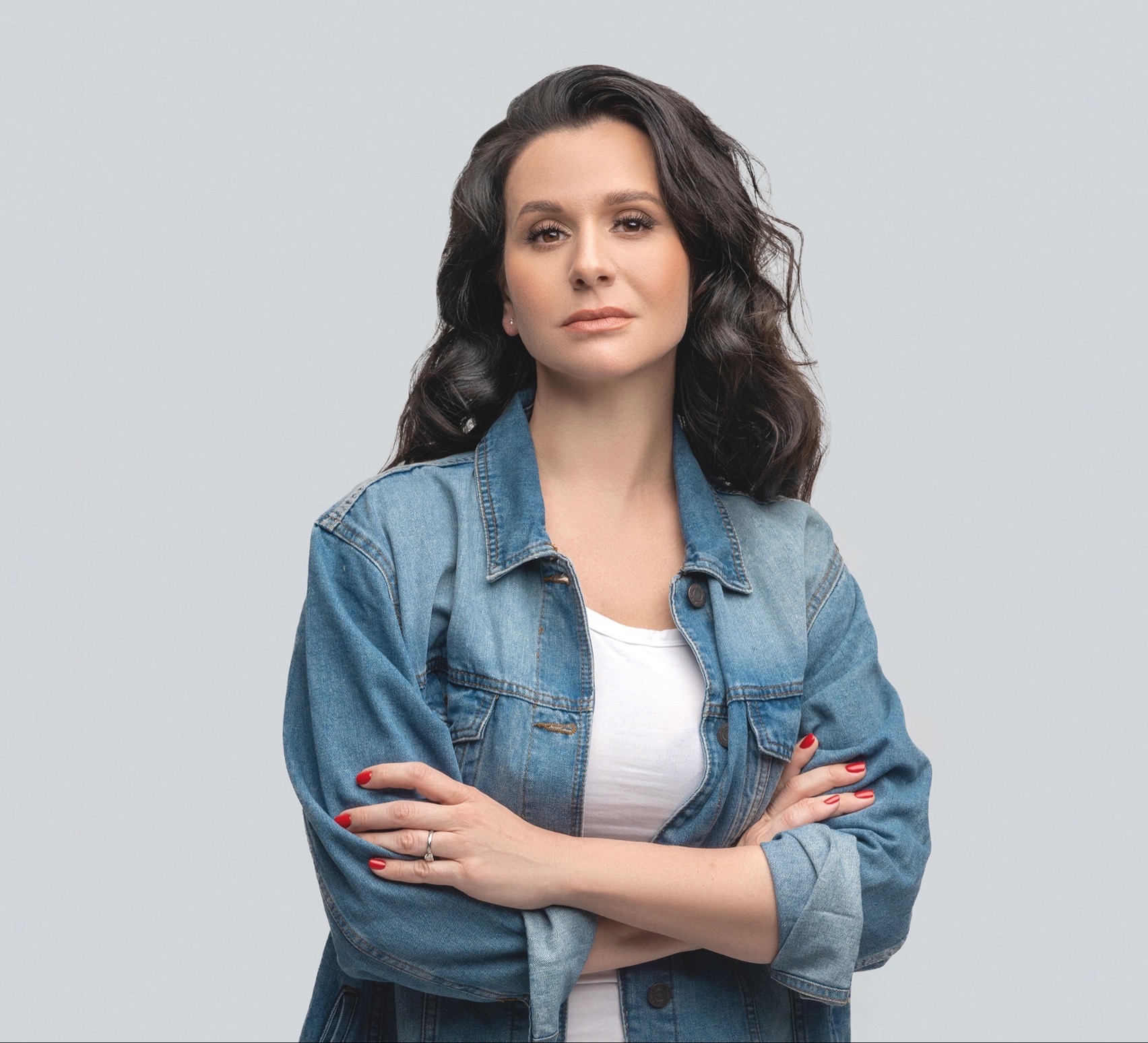








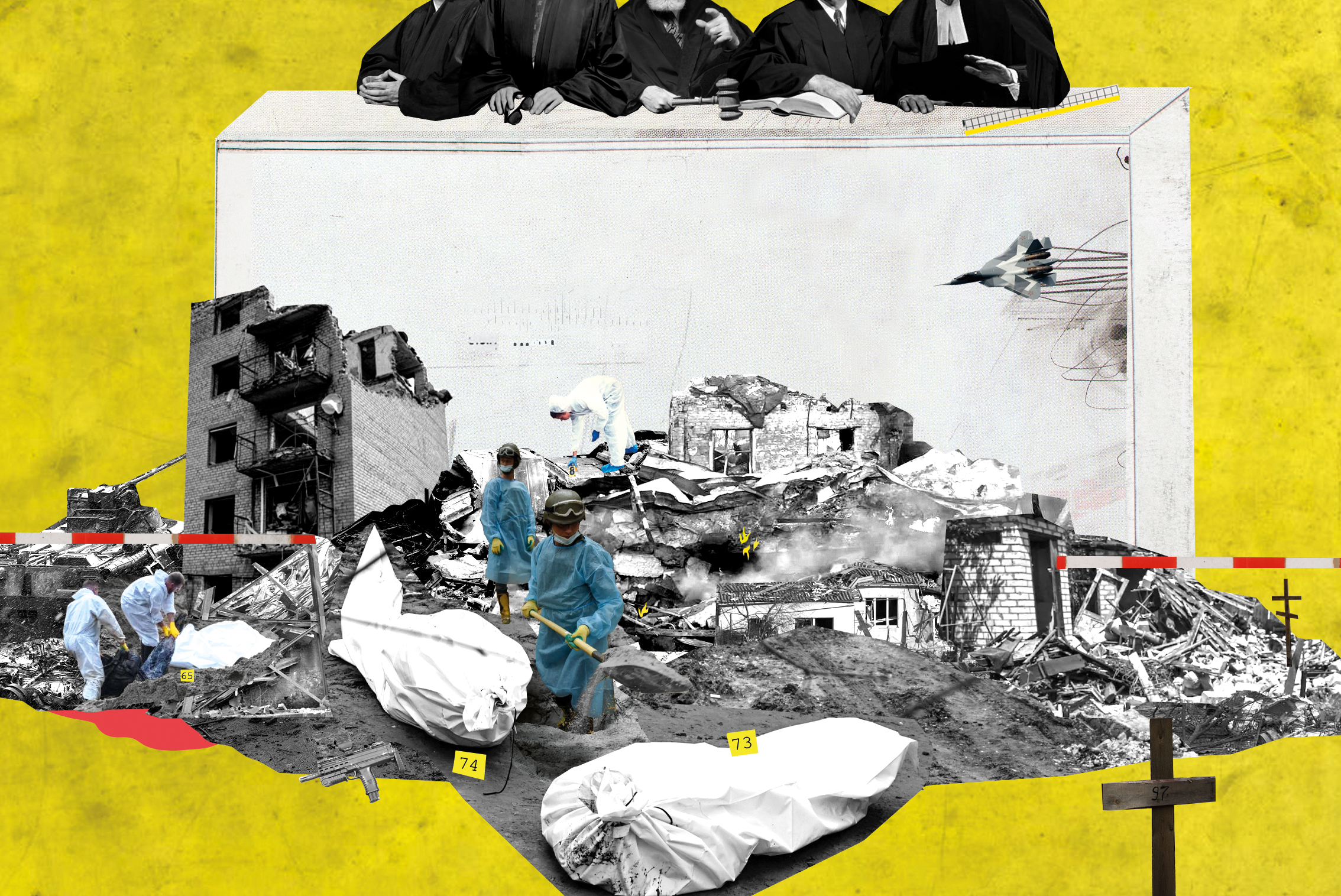
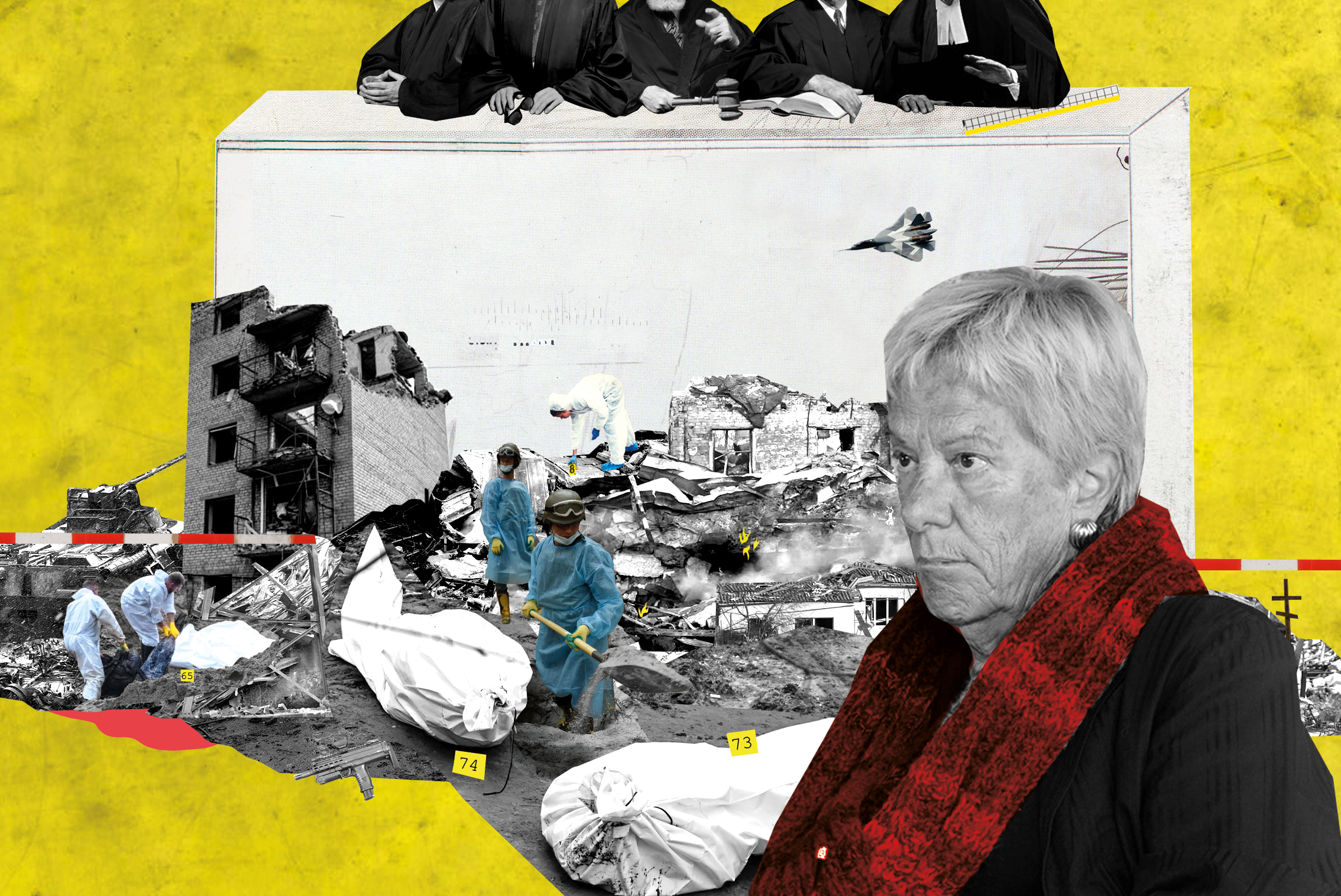

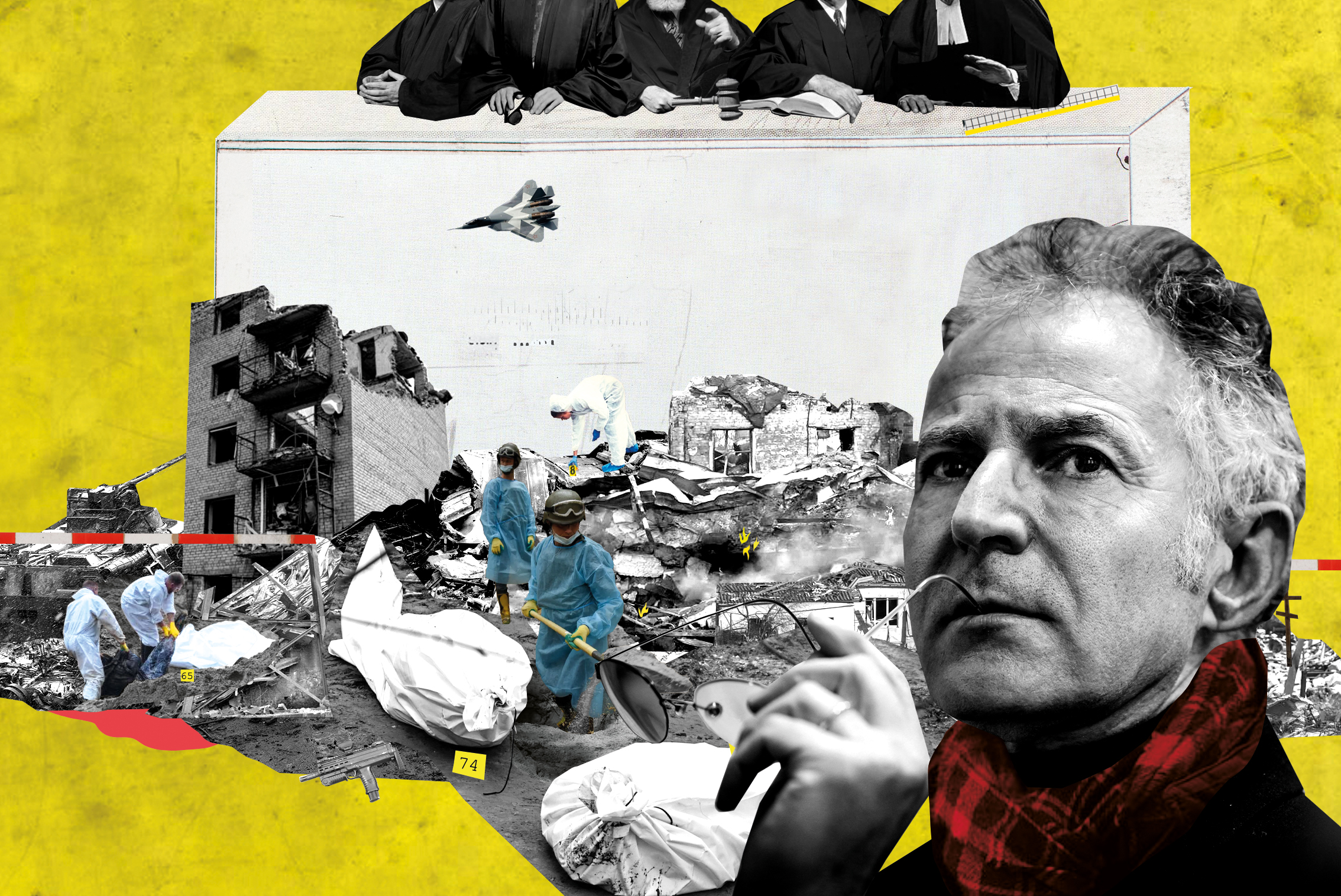
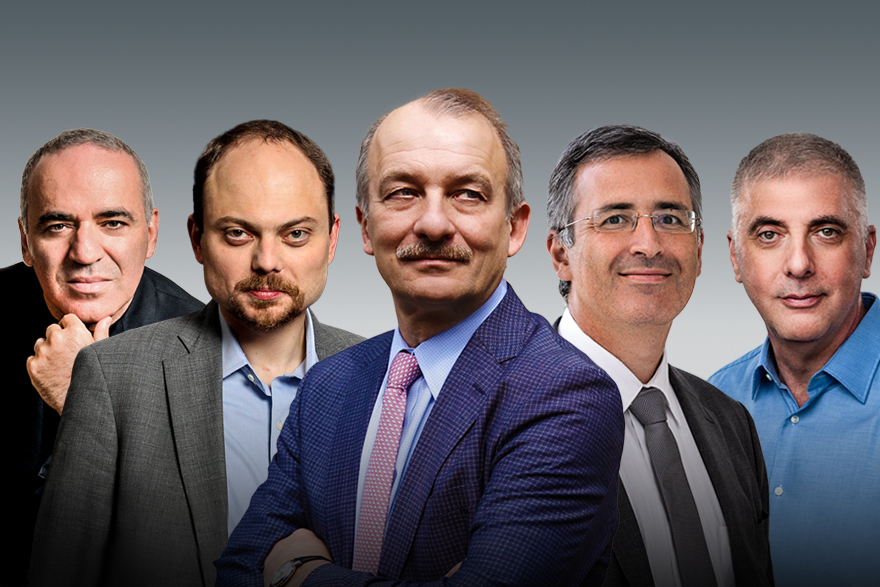
You can find an overview of ongoing debates with our journalists here . Please join us!
If you want to start a conversation about a topic raised in this article or want to report factual errors, email us at english@swissinfo.ch.